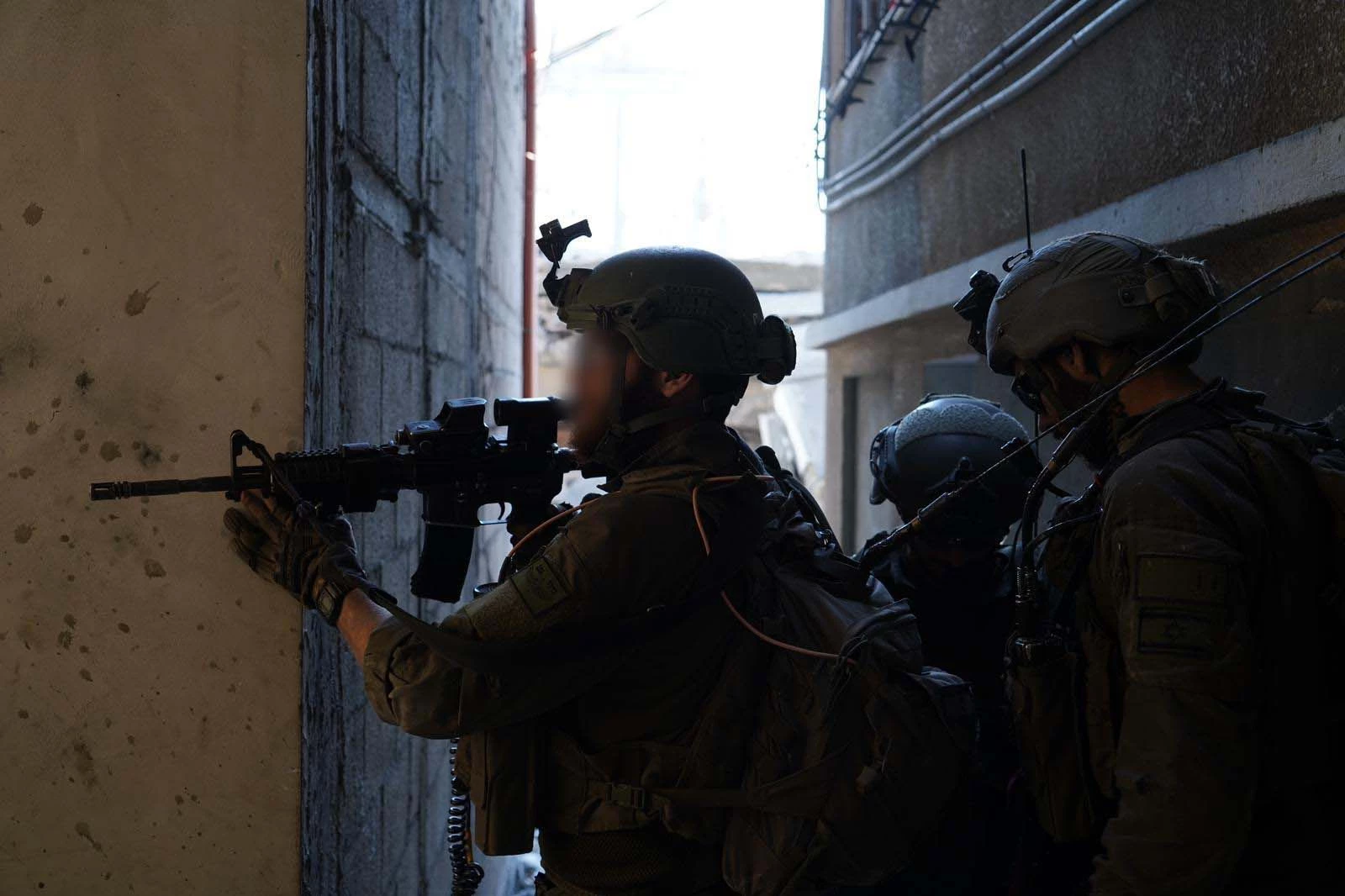
One of the most challenging missions Zilberman’s unit faced was the evacuation of 150,000 civilians in Khan Yunis.
By Sveta Listratov, TPS
Lt.-Col. Eli Zilberman’s Namer APC rumbled across the Gaza border on October 27, 2023. The smell of smoke and the relentless whistling of mortar fire greeted his unit as it advanced into Gaza City.
“We weren’t just fighting terrorists,” Zilberman recalled. “We were fighting an entrenched system that had infiltrated every aspect of life in Gaza.”
Within hours, the realities of war would set in: comrades injured, civilians displaced, and the brutal sights of urban combat etched into their memories.
For Zilberman, a 35-year-old father of two and a successful tech entrepreneur, war was a return to a life he thought he had left behind. But when Hamas attacked southern Israel on October 7, Zilberman answered the call of duty — and documented his experiences.
His just-released book, Lions on Namer APCs, recounts fierce battles in northern Gaza, Khan Yunis, and Rafah, and witnessing Hamas’s deep entrenchment within Gaza’s civilian infrastructure.
“Initially, I just wanted to document what I was experiencing for my wife and myself,” Zilberman told The Press Service of Israel.
“It started as short notes on my phone, written in the early hours after long days of fighting. But as the war continued, I realized these accounts needed to be preserved, not just for me but for everyone touched by this war.”
Writing a book was not something Zilberman ever envisioned. He was busy running two Israeli tech startups.
But when a friend’s desperate call on the morning of October 7 alerted him to the chaos unfolding in southern Israel, Zilberman donned his uniform and rushed to the battlefield.
“There’s hardly a house in Gaza without some connection to Hamas,” Zilberman told TPS-IL. “One particularly striking moment came when our unit uncovered a luxurious home stocked with Hamas equipment. Seeing an affluent home turned into a hub for Hamas terror operations left me stunned. It wasn’t poverty driving this, it was ideology. That’s the enemy we’re up against.”
He added, “We didn’t see much opposition to Hamas from the population. Mostly, we saw people’s understandable negative reactions to having to leave their homes, but no significant resentment toward Hamas for causing it.”
One of the most challenging missions Zilberman’s unit faced was the evacuation of 150,000 civilians in Khan Yunis.
“It was a logistical and moral tightrope,” he said. “We had to separate terrorists from civilian families, all while under fire.” Soldiers worked tirelessly, checking IDs, questioning evacuees, and using intelligence gathered during the process to locate hidden arms caches.
“The sheer scale of the operation—combined with the constant threat of ambush—was unlike anything we had trained for,” Zilberman recalled to TPS-IL.
Regarding the ceasefire, Zilberman remains steadfast that the fight must continue, that the truce is the beginning of a longer battle.
“Bringing the hostages home is our sacred duty. But we can’t stop there,” he insisted. “We need to ensure that Hamas can never again carry out the atrocities of October 7. We owe it to our fallen soldiers and their families,” he says. “It’s not just about winning—it’s about ensuring that our children can grow up in safety.”
Said Zilberman, “This book isn’t just my story. It’s the story of every soldier who fought, every family who made the ultimate sacrifice, and every Israeli who lived through this war.”
The post From the frontlines to the book: Israeli brigade officer chronicles Gaza battles appeared first on World Israel News.